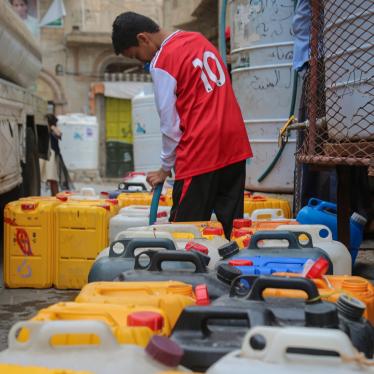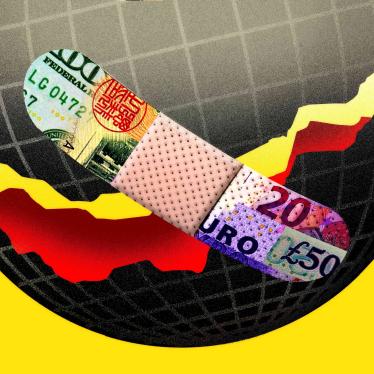(London) – The European Bank for Reconstruction and Development (EBRD) should articulate concrete human rights benchmarks for Egypt, Jordan, Morocco, and Tunisia as it expands its operations into the Middle East and North Africa, Human Rights Watch said today in a letter sent to the bank’s president, Thomas Mirow.
The bank is holding its annual meeting in London, on May 18 and 19, 2012. It brings together finance and development ministers, central bankers, private sector representatives, and civil society activists to discuss a broad range of issues linked to the bank’s mission, to foster transitions toward open and democratic market economies. The governors will also elect a new president, in the bank’s first competitive leadership vote.
“Serious human rights abuses continue in the Middle East and North African countries,” said Jessica Evans, senior international financial institutions advocate at Human Rights Watch. “The EBRD should send a clear message that it expects reforms in exchange for engagement.”
The EBRD is unique among international financial institutions in having an express political mandate as well as an economic one, recognizing the interconnectedness of political and economic reforms and the importance of human rights to development. The bank’s founding agreement underscores its commitment to the “fundamental principles of multiparty democracy, the rule of law, respect for human rights, and market economics.” The agreement declares as the bank’s purpose “to foster the transition towards open market-oriented economies and to promote private and entrepreneurial initiative” in “countries committed to and applying the principles of multiparty democracy, pluralism, and market economics.”
“The bank can only live up to its important political mandate by clearly articulating concrete and measurable human rights reforms it expects from the countries where it operates,” Evans said. “The bank should make clear that the extent to which governments carry out these reforms will determine the bank’s level of engagement in the country.”
Setting human rights benchmarks and making investment contingent on their fulfillment is not without precedent for the bank. It has adopted a similar approach for other countries where serious human rights concerns persist, including Belarus, Turkmenistan and Uzbekistan.
Benchmarks for the Middle East and North Africa countries should be tailored to each country's specific human rights problems, Human Rights Watch said. Common areas of key concern include:
- Protecting the rights to free speech, assembly, and association, in law and in practice;
- Investigating all allegations of torture and ill-treatment of detainees and all incidents of excessive use of force, beating and sexual assault by the police and military, and holding accountable those responsible;
- Enshrining respect for human rights treaties in domestic laws including in new constitutions and making a commitment to gender, religious and ethnic equality.
Shareholder governments, in particular EU member states and the United States government, have a crucial role to play in ensuring that the bank’s expansion promotes rights reform, Human Rights Watch said. They can do this by promoting the benchmarks as part of their overall dialogues with the governments concerned.
“We believe that by setting benchmarks and linking engagement to their fulfillment, the EBRD has an opportunity to promote rights reforms in the Middle East and North Africa,” Evans said.






